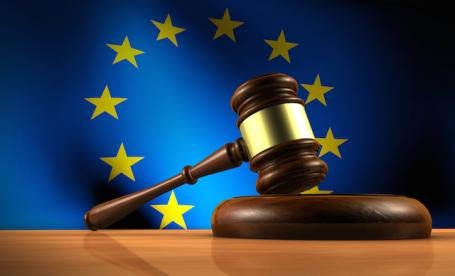After 17 hours of uninterrupted negotiations, the European Council reached, minutes before the opening of the European markets, on Monday July 13, an agreement to launch negotiations for a third bailout program for Greece.
Despite the loss of trust in the country’s leaders, despite a referendum in which more than 61 % rejected the reform plan which was supposed to conclude the second bailout program, despite the anger of some EU heads of government, the political will to keep the Eurozone together triumphed in the end.
Even if some difficult steps still need to be made, one can be reassured as from now that Greece will receive enough help and will enforce enough reforms to be able to stay in the Eurozone.
The agreement contains various elements:
- The most central is a set of reforms the Greek Parliament is supposed to adopt in order to allow the negotiation of a new bailout program of 82 to 86 Billion Euros. These reforms – touching the pension system, the VAT levels go much further than those which were asked for the completion of the second program. (The full text can be found here.)
- Greece had also to accept the setting up of a 50 Billion Euro fund where assets will be stored. It will be established in Athens (and not in Luxembourg as originally suggested) but under EU oversight . Half of its resources will be used to recapitalize Greek banks , the rest should help the privatization process which had brought very disappointing results under the previous bail outs.
- Apart from the bailout support, Greece will also receive 35 billion Euros in financial aid to revive its economy. This was an important contribution of Jean Clade Juncker’s Commission to the package.
- There is “no question” of debt relief but an opening to an extension of the deadlines for reimbursement.
- One of the last sticking points, which prolonged the negotiation until the early morning was the participation of the IMF in the new bailout; Tsipras did not want it but Greece will have to” request IMF support, (monitoring and financing) as from March 2016”.
- The ECB announced soon after the decision was made that it would decide on an extension of the Emergency Liquidity Facility loans only after the vote in the Greek Parliament, which means that the Greek banks will remain closed until then.
- The most serious unknown at this stage is indeed the reaction in Greece. Part of Syriza will probably reject the agreement but Tsipras had been careful to enlist the support of the mainstream parties which will vote in favor in order to keep the country in the Euro.
- The trust was so low that, as part of the agreement, the Greek Parliament will need to vote the most sensitive reforms this week probably Wednesday) , before any other decision can be made.
Several other Parliaments in the EU will also need to agree on the package. Angela Merkel seems to be sure to get the agreement of the Bundestag. The most negative in the whole negotiation was Finland which counts a Eurosceptic party (“the true Fins”) in the government. The perspective of a decision on the bailout by qualified majority (in emergency circumstances the decision can be made with a 85% majority in the ESM) probably helped and the agreement in the European Council could be announced as unanimous.
The Eurogroup – the meeting of the finance ministers of the Eurozone – will meet (as from today) to monitor the process and find a way to give Greece a “ bridge credit” in order to face its immediate needs.




 i
i

